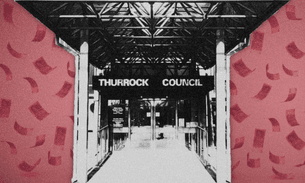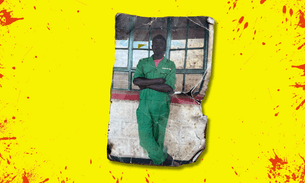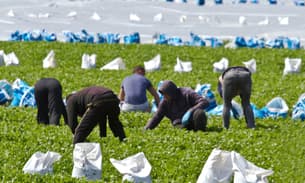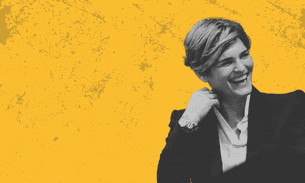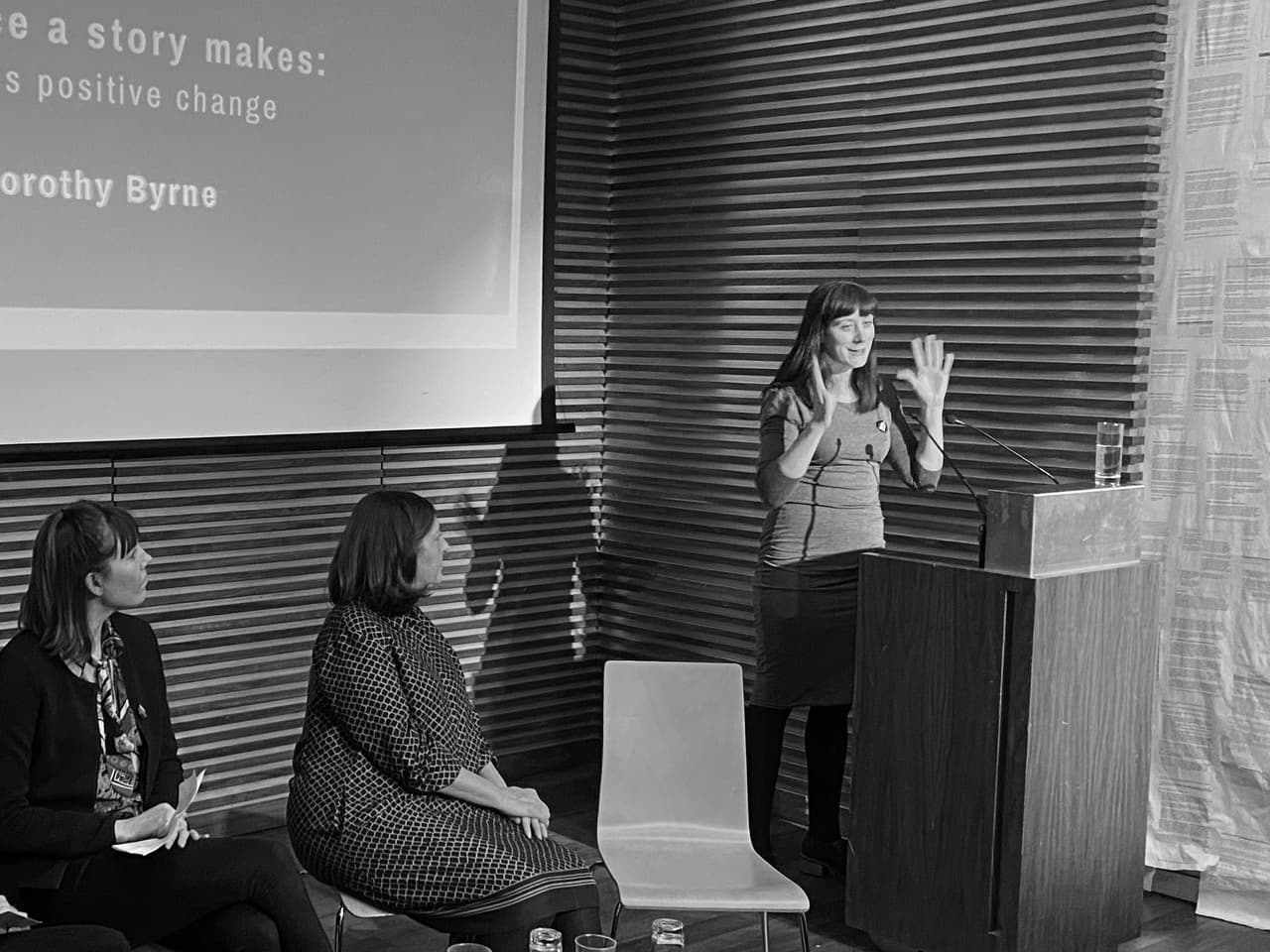
Drawing the line between impact and activism
To what extent should journalists seek change on the issues they cover? Or put another way – when does journalism become activism, and should we cross that line?
It’s a question that is fundamental to my role as impact editor, and one I’ve been asked every time I’ve spoken about the job since I took it up in June last year. Indeed a key part of my role is considering that question, and navigating the tightrope that answering it inevitably throws up. There is no one answer.
However, I think it’s fairly safe to assume that most journalists working at public interest news organisations believe that this kind of journalism has an important, positive effect on the world; that without it the world would be a worse place. That is certainly true of all the journalists at the Bureau.
And, let’s be honest, of course we want the injustices and failings that we report on to end. The Bureau’s investigations focus on systemic problems and issues that can have a devastating effect on people’s lives, on the environment, on democracy. If we didn’t think there was a problem that should be addressed, then we wouldn’t be reporting on it.
The debate arises when we get into the details: What exactly is the difference that journalism can and should make, and what role should journalists play in bringing that about?
These are two key questions we’ve been grappling with at the Bureau. There are some differences in opinion, which is something to be welcomed – there are no simple answers in this area. But here are some basic tenets we’ve reached:
- Quality reporting exposes wrongdoing and failings; it provides evidence and data; it challenges accepted narratives and it engenders empathy
- Social change is non-linear and complex; it involves a patchwork of different people, groups, events, moments, movements and institutions at different times in different ways
- The role our journalism plays in that change is providing evidence, offering alternative viewpoints and bringing empathy that people can use to inform their actions and decisions, across all parts of that patchwork
So that is the positive difference journalism makes: it allows people to take decisions and actions that are more informed and insightful. But it doesn’t happen automatically, by virtue of being published – the journalism will only make that difference if it is actually used. Which brings us to the second question: what role should the journalists play in making that happen?
If we want our journalism to inform actions and decisions, then we need to get it to the people behind those actions and decisions, big and small, in a format they can use. Publishing a story or broadcasting a package via a major outlet can be a good step in doing that, but there is so much more we can do. Often, there will be far more effective ways of reaching and engaging the people who could really benefit from the information.
So the role the Bureau plays is taking proactive steps to push out our journalism and directly engage people who could or should use it. We think carefully about who those people are. Who has the power to make or drive change, who is doing work that our reporting feeds into, who is affected by this issue and could benefit from this information? What are the ways in which they consume information and how can we best connect with them?
We build ongoing relationships with those people and groups, so that our journalism can be useful over time, not just at the point an investigation is released. This doesn’t just increase our impact – it also strengthens our reporting.
A great example of all this is an investigation we did last year on domestic abuse perpetrated by police officers and staff, and the failure of forces to take it seriously. A story focused on the data went out in The Times, while a powerful human-focused package, centred on the experiences of the victims, was broadcast on the BBC’s Victoria Derbyshire show.
Outside the traditional output, we took the data and human stories directly to key people and groups: we provided evidence to lawyers who have now launched a complaint against the police, we presented our findings to MPs at an all-party parliamentary group and to a senior policing figure at a private meeting, and we gave a cut-down version of the piece to a Women’s Aid publication that goes to hundreds of organisations working in the domestic abuse sector. Relationships we built during the reporting process were key to making all this happen.
To get our findings and stories to our target audiences we’ve also submitted evidence to government inquiries, written briefing documents, built online interactives, produced and toured a one-woman show and hosted story circles, roundtables, community meetings and live journalism events. We build relationships with groups whose work we can feed into and vice versa, such as academics, industry bodies, thinktanks, NGOs and lawyers.
So impact doesn’t mean “we changed something”. It means our journalism – the evidence and the human stories – is being used, by all the different types of people and groups who can benefit from it: the communities affected by the issues we cover; the organisations, lawyers and academics and others working in the area; and the people and institutions with the power to change laws and policies. That is journalism being a part of positive change, but it is not journalists campaigning for change.
It is not our role to call for a particular solution, and we will never become partisan campaigners, framing narratives or omitting facts to suit a purpose. The Bureau prides itself on having rigorous editorial standards, and we will never compromise our journalistic integrity in the service of any goal.
But if we are to truly fulfil our public interest mission, then it is our job to take our findings and stories into the world, to the people and groups who can benefit from them. Journalism can be so much more than just words on a page.
Header image by Jamie Drew

